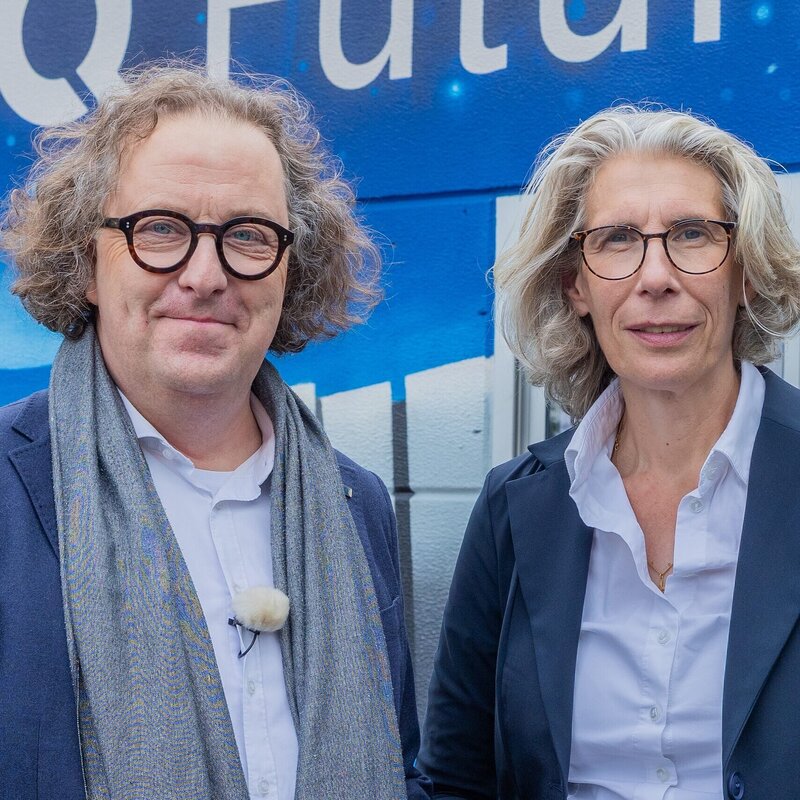Lars Baumgürtel, co-CEO of ZINQ, lauded as role model for raw materials and energy efficiency
The steel industry is one of the world’s most resource-intensive—and is also one that has considerable potential to reduce its consumption of materials and energy and thereby shrink its carbon footprint. And ZINQ, a hot-dip galvanizing plant based in Gelsenkirchen, is leading the way forward. Lars Baumgürtel (Diplom 1992) and his business partner Dr. Birgitt Bendiek have now been awarded with the German Environmental Award from the German Federal Environmental Foundation (DBU) for their company’s efficient usage of energy and raw materials, as well as their substantial contributions to the circular economy. “Apart from ensuring a minimal output of greenhouse gases, ‘Planet ZINQ,’ our business model, is primarily concerned with circular subsidence adaptation strategies,” noted the co-CEOs.
It was Frank-Walter Steinmeier, President of the Federal Republic of Germany, who presented the award to Bendiek and Baumgürtel. They shared this honor with Swiss climate researcher Dr. Sonia Seneviratne. The award is endowed with €500,000 and therefore counts itself among Europe’s most remunerative honors in the field of environmentalism. According to the DBU Secretary General Alexander Bonde, ZINQ is “an inspiring role model for raw material and energy efficiency and characterized by sustainability and circular economy in a resource-intensive industry.”
Anything made of steel, from simple objects to entire buildings, would fail without proper coating, as steel begins to rust from the second it comes into contact with oxygen. According to estimations from the World Corrosion Organization (WCO) and the Max Planck Society for the Advancement of Science, rust costs the German economy hundreds of billions of euros in damages every year. Without coating, that amount would be even greater, rendering the galvanization industry indispensable. ZINQ uses a patented micro-zinc process that allows steel components to be treated with a zinc coating that is nearly 80% thinner than usual. This saves the company resources while also driving forward its energy- and material-based transformation.
Learn more about ZINQ in a recent feature from Nano Magazin, hosted in the ZDF Media Library (in German).

